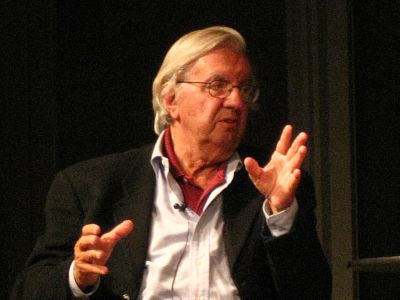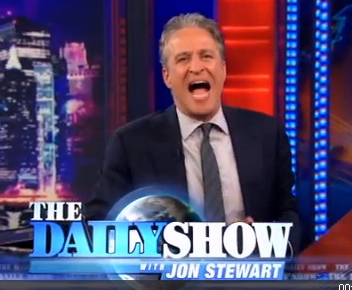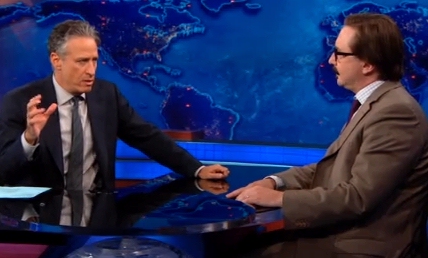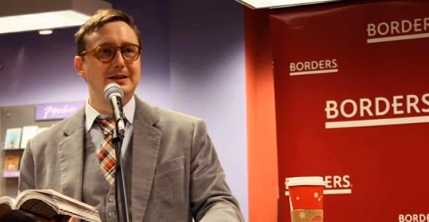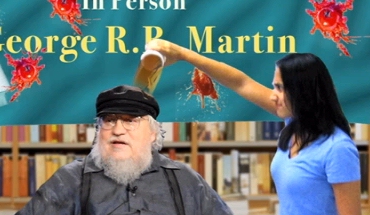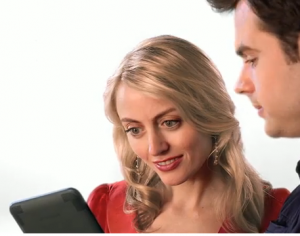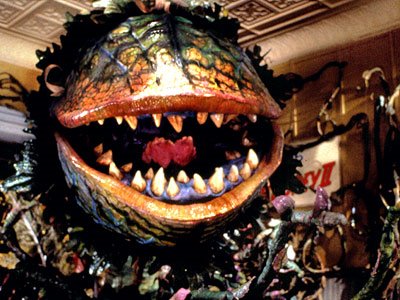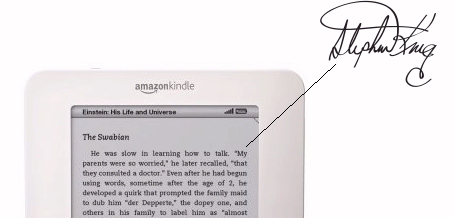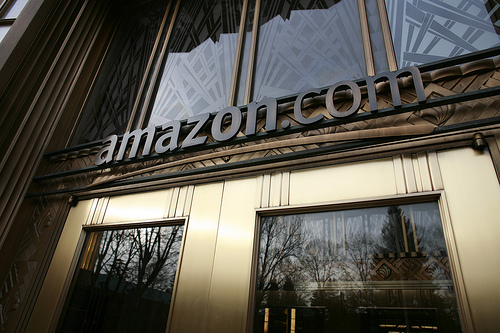
Your local mall might be getting a new tenant — a Kindle Store, filled with Kindles, accessories and the most popular books in print (including books published exclusively by Amazon). At least, that’s the new rumor which found its way to Publisher’s Weekly.
On their Twitter feed, the industry magazine shared the juicy headline (from a story by the Financial Post). “Is Amazon bringing a bookstore to a mall near you?” it asks, citing a report from the blog “Good E-Reader.” Within the next few months, according to the story, Amazon will try opening a real-world store to sell books and Kindles in Seattle, as “a test to gauge the market and see if a chain of stores would be profitable”! They cite multiple sources at Amazon “close to the situation,” and predict the store will open before next Christmas, and maybe even towards the fall, when Amazon officially launches their own line of books, or when Amazon releases the next version of their Kindle Fire tablet.
My first thought was: Maybe it’s because of the Kindle. Maybe ebooks have become so popular that Amazon now needs a new way to get rid of all their printed books! But then I remembered a bitter fight that Amazon’s been having with Barnes and Noble. Amazon announced they’d start publishing their own line of printed books, and then Barnes and Noble announced that they wouldn’t sell them! And they’re not the only bookstore planning to freeze out Amazon’s books, according to a columnist at Publisher’s Weekly. “I asked a number of independent booksellers in my beat (the South) whether they’d be stocking Amazon-published books. Answers ranged from ‘No’ to ‘Hell, no.’ ”
It’s an interesting column, because it points out that Barnes and Noble acquired a publishing house of their own in 2003 — after which other big book-sellers (including Borders and Costco) announced they’d
they stop carrying books from that publisher. “It’s easy to forget, in the age of monolithic publishing houses and ubiquitous big-box retailers, that the bookstore-as-publisher tradition goes way back – as pointed out in a recent Salon article, Shakespeare & Company published Ulysses, and City Lights published Howl.” But it still feels like an aggressive move, with Amazon launching both a publishing house for print books and a line of stores for selling them.
Of course, their real target may be Apple. Maybe Amazon’s decided they need their own stores at the mall where people can buy a Kindle Fire tablet, to keep competing with Apple’s iPad. Maybe Amazon wants to be able to offer same-day customer support, where you can bring in a defective Kindle, and receive a replacement Kindle the same day! And in the long-run, Amazon can keep benefiting from any new customers that their stores would bring in. After all, once a customer buys a Kindle, they’ll start buying all of their ebooks from Amazon!
It’s stories like this convince me that our world is changing — and fast! Last year, we were debating whether Amazon would destroy local bookstores. Now instead, we’re wondering whether Amazon will become our local bookstore!
